Understanding the Role of ABS Pump in Car Brakes
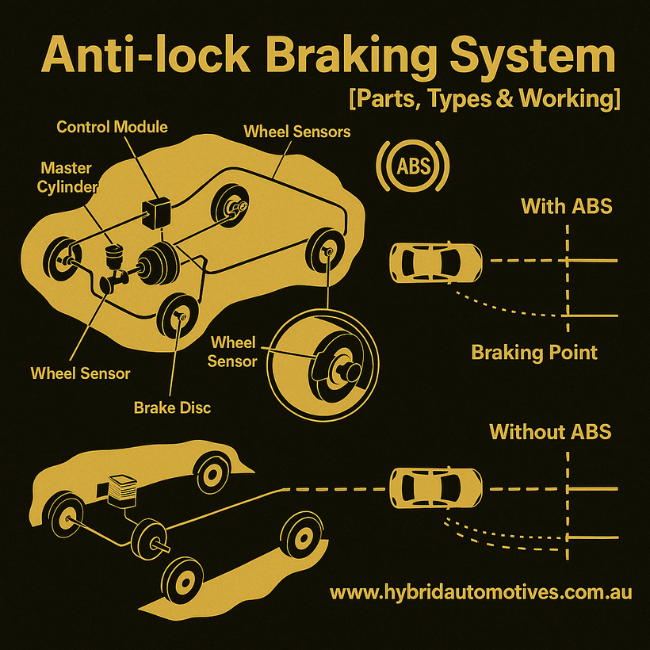
An ABS (Anti-lock Braking System) pump is an essential component of modern vehicles, contributing significantly to road safety. Explore ABS Pumps in detail, explaining how they work, what parts they have, their advantages, common problems, how to take care of them, and advancements in their technology. Introduction to ABS Pump In today’s automotive landscape, safety is paramount, and the ABS pump plays a crucial role in ensuring safe braking maneuvers. Essentially, an ABS pump is like a smart brake system. It has a hydraulic part and a control unit that work together to stop your wheels from locking up when you brake. This helps you keep control of your steering and grip on the road. Components of ABS Pump An ABS (Anti-lock Braking System) pump consists of several parts that work together to ensure effective braking in vehicles. These components include: Hydraulic Unit: The hydraulic unit of the ABS pump is responsible for regulating brake pressure during operation. It has valves and pistons inside that control the pressure of the brake fluid to stop the wheels from locking up. Electronic Control Unit (ECU): The ECU is like the ABS’s brain. It processes data from wheel speed sensors and controls the operation of the hydraulic unit to prevent skidding during braking. Wheel Speed Sensors: These sensors are placed on each wheel and keep track of how fast the wheels are spinning. The data collected by the wheel speed sensors helps the ECU determine if any wheels are at risk of locking up during braking. How ABS Pump Works ? The ABS pump works by checking how fast each wheel is moving all the time. If it notices one wheel is slowing down too much, it changes how hard the brakes press to stop it from locking up while you’re braking. Here’s an easy way to understand how it works: Detection of Wheel Speed: The ABS has sensors on each wheel that check how fast they’re spinning. These sensors send information to the ABS control module in real-time. Analysis by Control Module: The ABS control module keeps looking at the information it gets from the wheel sensors all the time. If it detects that one or more wheels are decelerating too rapidly, indicating a potential lock-up situation, it activates the ABS. Pressure Modulation: Upon activation, the ABS control module signals the ABS pump to modulate brake pressure. It does this by quickly pressing and releasing the brakes on the wheels that need it. Prevention of Wheel Lock-up: By adjusting the pressure of the brakes, the ABS pump stops the wheels from locking up. This helps the driver steer the car. This helps the vehicle to maintain traction and stability during braking, especially in slippery or emergencies. Monitoring and Adjustment: The ABS continuously monitors wheel speed and adjusts brake pressure as needed throughout the braking process. Once the ABS control module determines that the risk of wheel lock-up has been mitigated, it allows the brakes to function normally again. Benefits of ABS Pump The ABS (Anti-lock Braking System) pump offers several advantages that contribute to improved vehicle safety and performance. Here are the key benefits: Enhanced Vehicle Control: One big advantage of the ABS pump is that it helps you control your car better when you brake. It stops the wheels from locking up, so you can still steer even if you’re braking hard or driving on a slippery road. Reduced Braking Distance: ABS pumps help to reduce braking distance by preventing wheel skidding. By ensuring that the wheels continue to rotate during braking, the ABS system allows the vehicle to come to a stop more quickly, potentially reducing the risk of accidents. Prevention of Skidding and Loss of Control: Skidding can occur when one or more wheels lock up during braking, causing the vehicle to slide uncontrollably. The ABS pump prevents this by modulating brake pressure, thereby reducing the likelihood of skidding and loss of control. Improved Stability in Emergency Braking: During emergency braking maneuvers, the ABS pump helps to maintain stability and control by preventing wheel lock-up. This lets the driver turn the car away from things on the road while they’re braking, which makes crashes less likely. Better Performance in Adverse Conditions: ABS pumps are particularly beneficial in adverse driving conditions such as wet, icy, or gravelly roads. By preventing wheel lock-up, the ABS helps to maintain traction and stability, even when road conditions are challenging. Common Issues with ABS Pump While ABS (Anti-lock Braking System) pumps are designed to enhance vehicle safety, they can encounter various issues over time. Understanding these common issues is crucial for maintaining the functionality of the ABS. Here are some of the most frequent problems associated with ABS pumps: Sensor Malfunction: The ABS needs wheel speed sensors to work because they tell it how fast each wheel is spinning. Sensor malfunctions, such as dirt accumulation, corrosion, or wiring faults, can lead to inaccurate readings and trigger ABS warning lights. Pump Failure: The ABS pump itself can fail due to mechanical issues or electrical faults. Parts inside the ABS pump can get old and worn out, which can make it work less well or stop working altogether. Problems with the electrical system, like broken wires or bad relays, can also make the ABS pump stop working right. Electronic Faults: The electronic control unit (ECU) of the ABS may encounter faults or glitches, leading to erratic behavior or complete system failure. Issues with the ECU can arise due to software errors, voltage irregularities, or damage to electronic components. Fluid Contamination: Contaminated brake fluid can compromise the performance of the ABS pump and other hydraulic components. Moisture, air bubbles, or debris in the brake fluid can interfere with the operation of valves and pistons within the hydraulic unit, leading to reduced braking effectiveness. Brake Fluid Leaks: If there are holes in the hydraulic system, the brake fluid can leak out. This makes the hydraulic pressure lower and might make the ABS pump stop working. Common
Do Hybrid Cars Have Lithium Batteries?
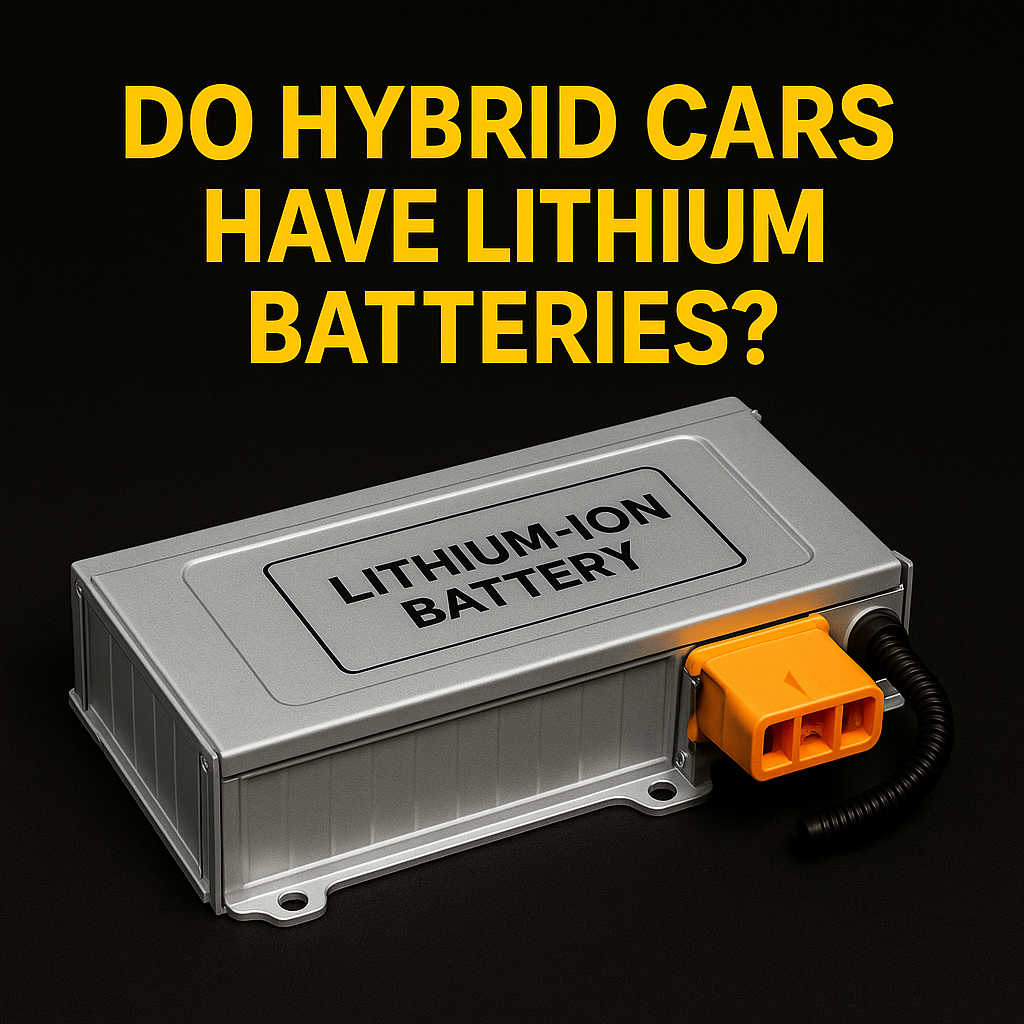
A hybrid vehicle offers fuel efficiency, reduced emissions, and a seamless driving experience, revolutionizing the automotive industry. However, a common question among hybrid owners and potential buyers is: Do hybrid cars have lithium batteries? In this case, the answer depends on the model and manufacturer. In some hybrids, lithium-ion batteries (Li-ion) are used, while in others, nickel-metal hydride (NiMH) batteries are used. At Hybrid Automotive Service, we specialize in servicing and replacing hybrid batteries, ensuring that your vehicle runs efficiently—whether it uses NiMH or Li-ion technology. Understanding Hybrid Battery Types 1. Nickel-Metal Hydride (NiMH) Batteries Used in: Older hybrid models and some current Toyota and Honda hybrids. Proven reliability: NiMH batteries have been used in hybrid vehicles for decades and have a strong track record. Durability: These batteries are long-lasting and resistant to extreme temperature changes. Lower cost: Compared to lithium-ion, NiMH batteries are generally cheaper to manufacture. Heavier and less efficient: NiMH batteries weigh more and store less energy than their lithium-ion counterparts, affecting overall vehicle performance. 2. Lithium-ion (Li-ion) Batteries Used in: Most modern hybrid vehicles, plug-in hybrids (PHEVs), and electric vehicles (EVs). Higher energy density: Fuel efficiency is improved by using lithium-ion batteries, which are smaller, lighter, and store more power. Faster charging and discharging: Li-ion batteries support better regenerative braking and overall hybrid performance. Longer lifespan: With advanced thermal management, these batteries tend to have a longer operational life. Higher cost: While lithium-ion technology is more efficient, it is also more expensive to produce than NiMH. Do All Hybrid Cars Have Lithium-Ion Batteries? Not all hybrid vehicles use lithium-ion batteries. Some manufacturers still equip their hybrids with NiMH packs due to their affordability and reliability. Here’s a breakdown of some popular hybrid models and their battery types: Toyota Prius (Older Models) NiMH Toyota Prius (Newer Models) Li-ion NiMH Toyota Camry Hybrid Li-ion Lexus RX 450h NiMH Li-ion Honda Insight Li-ion Hyundai Ioniq Hybrid Li-ion Ford Escape Hybrid Li-ion Many automakers offer both battery types in different trims or markets, depending on cost and regulatory requirements. However, the performance of lithium-ion batteries is rapidly making them the industry standard. Why Are Automakers Switching to Lithium-Ion? The shift toward lithium-ion batteries is driven by several factors: ✅ Better Efficiency – Lighter weight and improved energy density contribute to better fuel economy. ✅ Faster Charging – Li-ion batteries allow quicker energy recovery during regenerative braking. ✅ More Power – Higher output enhances acceleration and electric-only driving capabilities. ✅ Reduced Environmental Impact – Li-ion batteries are more recyclable and require fewer raw materials compared to NiMH. Despite these advantages, NiMH batteries are still widely used due to their proven reliability and cost-effectiveness. Hybrid Battery Maintenance & Replacement Regardless of your hybrid’s battery type, regular maintenance is essential for optimal performance. At Hybrid Automotive Service, we provide: 🔹 Hybrid Battery Diagnostics – Identifying early signs of battery degradation. 🔹 Battery Conditioning & Reconditioning – Restoring capacity in aging battery packs. 🔹 Hybrid Battery Replacement – Offering high-quality NiMH and Li-ion replacements. 🔹 Customized Battery Solutions – Upgrading older hybrids with lithium-ion technology (where compatible). If your hybrid’s battery is underperforming, we can help determine whether reconditioning or replacement is the best option for your vehicle. Which Battery is Better? Both NiMH and lithium-ion batteries have their advantages. While lithium-ion is the future of hybrid technology, NiMH remains a trusted, budget-friendly option in certain hybrid models. Whether your hybrid runs on NiMH or Li-ion, Hybrid Automotive Service is your trusted expert in battery diagnostics, maintenance, and replacement. Our skilled technicians ensure that your hybrid battery delivers peak performance, keeping your vehicle running efficiently for years to come. Need hybrid battery assistance? Contact Hybrid Automotive Service today!
How Do I Know If My Lexus Hybrid Battery Is Bad?
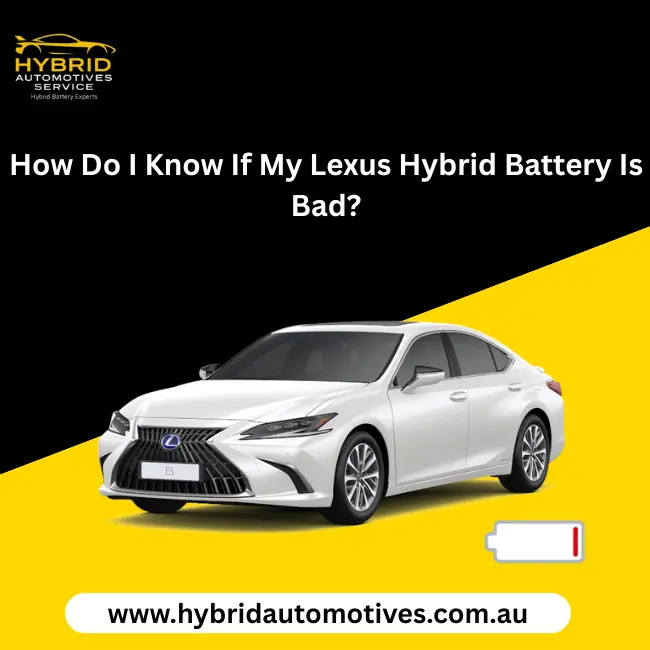
A hybrid vehicle, such as a Lexus hybrid, is renowned for its efficiency and smooth performance. However, like any car component, hybrid batteries have a lifespan, and knowing when yours is failing is crucial. For expert maintenance and battery replacement, Hybrid Automotive Service is the trusted name to keep your Lexus running efficiently. Top Signs That Your Lexus Hybrid Battery Might Be Failing 1. Decreased Fuel Efficiency Buying a Lexus hybrid is a great way to save money on gas. If you notice that your miles per gallon (MPG) has suddenly dropped, it could be a sign that your hybrid battery is no longer holding a charge adequately. Consequently, gasoline engines have to work harder and consume more fuel. 2. Erratic Battery Charge Levels If the battery gauge on your dashboard fluctuates unpredictably—rapidly jumping from a full charge to low or vice versa—this may suggest the battery cells are deteriorating. A reliable service provider like Hybrid Automotive Service can diagnose and resolve this issue. 3. Dashboard Warning Lights Pay attention to your car’s dashboard. The “Check Hybrid System” warning light is a clear indication of potential battery problems. Other generic warning lights, such as the check engine light, can also illuminate if the battery isn’t performing optimally. 4. Poor Performance A failing hybrid battery may cause your Lexus to lag during acceleration or produce uneven power distribution. You might also notice that the vehicle struggles more in electric-only mode, requiring more frequent gasoline engine support. 5. Unusual Noises or Smells When hybrid batteries degrade, they can sometimes produce strange noises, such as clicking or humming sounds. Additionally, a foul or burning odor might indicate overheating or internal damage. 6. Shorter Electric-Only Range The Lexus hybrid is designed to operate for short distances solely on electricity. If this range is noticeably shorter than before, the battery may have lost some capacity. What Should You Do If Your Lexus Hybrid Battery Is Failing? If you notice any of the signs above, you should address the issue as soon as possible. If a hybrid battery is ignored, it can lead to decreased performance and higher repair costs in the future. You should take the following steps: Schedule a Diagnostic Test The hybrid battery can be diagnosed as the cause of the problem by a professional diagnostic test. Hybrid Automotive Service specializes in testing Lexus hybrid batteries with precision equipment, ensuring accurate results. Consider Battery Reconditioning or Replacement If the battery is failing, you may have two options: reconditioning or replacement. Reconditioning involves restoring the battery’s capacity, while replacement involves installing a new or refurbished battery pack. Hybrid Automotive Service offers both services, offering you a cost-effective solution. Regular Maintenance Routine maintenance of your Lexus hybrid can prolong battery life. Services such as battery cooling system cleaning, cell balancing, and software updates are all crucial for optimal performance. Trust Hybrid Automotive Service for regular check-ups and maintenance to keep your hybrid system in top shape. Why Choose Hybrid Automotive Service for Your Lexus Hybrid? Expertise in Lexus Hybrid Systems: With years of experience, Hybrid Automotive Service specializes in diagnosing and repairing hybrid batteries for Lexus and other hybrid brands. Affordable and Transparent Pricing: Whether you need reconditioning, replacement, or routine maintenance, you’ll receive fair and upfront pricing. Nationwide Support: Access their services across Sydney, ensuring your Lexus hybrid receives the care it needs wherever you are. High-Quality Parts: Only the best replacement and reconditioning parts are used, ensuring long-term reliability. Lexus Hybrid Battery Life Prolongation Tips To maximize the lifespan of your Lexus hybrid battery and minimize repair costs, follow these practical tips: 1. Drive Smart Avoid aggressive acceleration and braking, as this can overwork the hybrid battery. Smooth driving habits allow the system to operate efficiently, preserving battery health. 2. Keep the Cooling System Clean Ensure that the battery cooling fan and intake ducts are regularly inspected and cleaned. Airflow can be blocked by dust, pet hair, and debris, resulting in overheating. Hybrid Automotive Service can assist with thorough cleaning during routine maintenance. 3. Park in Moderate Temperatures Whenever possible, park your Lexus hybrid in shaded or indoor locations to avoid prolonged exposure to extreme heat or cold, which can degrade the battery’s performance. 4. Use Battery Reconditioning Services Battery reconditioning is an affordable option to restore the performance of aging hybrid batteries. Hybrid Automotive Service offers professional reconditioning that balances and revitalizes battery cells, delaying the need for a full replacement. 5. Schedule Routine Maintenance Stay proactive with hybrid system maintenance, including software updates, cooling system checks, and battery diagnostics. Trusting experts like Hybrid Automotive Service ensure that your Lexus hybrid battery remains in top shape for the long haul.
How Long Do Hybrid Batteries Last?

Hybrid vehicles are gaining popularity for their impressive fuel efficiency and environmental benefits. A common question among hybrid car owners is, “How long do hybrid batteries last?” Knowing how long your hybrid battery is likely to last helps you prepare for maintenance and replacement expenses. At Hybrid Automotive Service, we specialize in hybrid battery replacement, ensuring your vehicle stays in top condition. Understanding Hybrid Batteries Hybrid vehicles operate using a combination of an internal combustion engine and an electric motor driven by a battery. The hybrid battery plays a crucial role in delivering optimal performance and fuel efficiency. Types of Hybrid Batteries Nickel-Metal Hydride (NiMH): Commonly used in older hybrid models. Lithium-Ion (Li-Ion): Lighter and more efficient, used in newer models. How Long Do Hybrid Batteries Last? The lifespan of a hybrid battery depends on various factors, including the vehicle model, driving habits, and maintenance. Generally: Manufacturer’s Estimate: Most hybrid batteries are designed to last 8-10 years or approximately 100,000 to 150,000 miles. Real-World Performance: Some hybrid batteries can last longer, with proper care reaching up to 200,000 miles or more. Factors Affecting Hybrid Battery Life 1. Driving Habits Aggressive driving, frequent braking, and extreme acceleration can reduce the lifespan of your hybrid battery. 2. Climate Conditions Hot Climates: Excessive heat can degrade battery performance over time. Cold Climates: Extremely cold temperatures can affect battery efficiency temporarily. 3. Maintenance Regular servicing and timely replacement of components prolong battery life. Services like battery reconditioning, offered by Hybrid Automotive Service, can enhance battery performance. 4. Quality of Battery OEM Batteries: Original Equipment Manufacturer batteries tend to have a longer lifespan. Aftermarket or Rebuilt Batteries: These are cost-effective options with varying lifespans depending on quality. Signs Your Hybrid Battery May Need Replacement Reduced Fuel Efficiency: If your vehicle uses more fuel than usual, it may indicate battery issues. Dashboard Warning Lights: Specific hybrid system or battery warnings. Unusual Noises: Clicking or humming sounds from the battery area. Inconsistent Performance: Difficulty in maintaining power during acceleration. How Can Hybrid Automotive Service Help? At Hybrid Automotive Service, we specialize in hybrid battery replacement for Lexus and Toyota vehicles. Our Services Include: Battery Options: OEM, Aftermarket, and Rebuilt Batteries. Warranty: All batteries come with a 3-Year/100,000KM Warranty. Expert Technicians: Skilled in diagnosing and replacing hybrid batteries. Fast and Reliable Service: Ensuring minimal downtime for your vehicle. Tips to Prolong Hybrid Battery Life Drive Efficiently: Avoid harsh acceleration and braking. Park in Shaded Areas: Protect your battery from extreme temperatures. Regular Maintenance: Schedule check-ups with professionals like Hybrid Automotive Service. Battery Reconditioning: Opt for periodic reconditioning to enhance battery life.
Cost and Replacement of Lexus Hybrid Batteries

How Much Does a Lexus Hybrid Battery Replacement Cost? Replacing a Lexus hybrid battery in Australia can be a significant investment, with costs influenced by the car model, manufacturing year, and the service provider. This guide provides detailed insights into various cost factors, alternatives like refurbished batteries, and tips for cost-effective replacements. We also explore the benefits of using independent repair shops versus dealerships and discuss the potential savings from using aftermarket parts. Understanding these options can help you make an informed decision about maintaining your Lexus hybrid vehicle. Replacing a Lexus hybrid battery in Australia can cost different amounts depending on the car model, the year it was made, and where you get it replaced. Here’s a basic idea of what you might expect to pay: Lexus Hybrid Battery Cost Breakdown: 1. Battery Replacement Cost: OEM (Original Equipment Manufacturer) Batteries: These are batteries supplied and typically cost more. The price for an OEM hybrid battery replacement for Lexus in Australia can range from AUD 1,750 to AUD 8,500, depending on the model. Aftermarket Batteries: These are less expensive alternatives provided by third-party manufacturers. Prices for aftermarket hybrid batteries can range from AUD 2,000 to AUD 5,000. 2. Labor Costs: Labor costs for replacing a hybrid battery in Australia can range from AUD 500 to AUD 2,000. The actual cost will depend on the labor rates at the dealership or repair shop and the complexity of the installation. 3. Additional Costs: Diagnostics: Some shops may charge additional fees for diagnosing the battery issue before replacement. Recycling Fees: You might also have to pay a fee to properly dispose of the old battery. Total Estimated Costs Dealer Replacement (OEM Battery): AUD 5,000 to AUD 12,000 Independent Shop Replacement (Aftermarket Battery): AUD 2,500 to AUD 7,000 Model-Specific Costs Lexus CT 200h: Replacing the hybrid battery in a Lexus CT 200h typically costs between AUD 4,000 and AUD 6,500. Lexus ES 300h: For a Lexus ES 300h, expect to pay around AUD 4,500 to AUD 8,000. Lexus RX 450h: The cost for a Lexus RX 450h hybrid battery replacement can range from AUD 5,000 to AUD 9,000. Lexus GS 450h: This model might cost between AUD 5,500 and AUD 10,000 for a hybrid battery replacement. Tips for Reducing Costs Warranty: Check if your hybrid battery is still under warranty. Lexus hybrid batteries often come with an 8-year/160,000-kilometre warranty, and in some states like New South Wales, the warranty is extended to 10 years/240,000 kilometers. Refurbished Batteries: Consider purchasing a refurbished battery. These are reconditioned batteries that can be significantly cheaper than new ones. Independent Repair Shops: Look for independent hybrid specialists who might offer lower labor rates than dealerships. DIY Replacement: If you have the skills and tools, replacing the battery yourself can save on labor costs, but this is only recommended if you are confident in your abilities and understand the risks involved. By understanding these cost factors and exploring your options, you can make a more informed decision about replacing your Lexus hybrid battery in Australia. Are there cheaper alternatives for Lexus hybrid battery replacement? Yes, there are cheaper alternatives for Lexus hybrid battery replacement in Australia. Here are some options: Cheaper Alternatives 1. Aftermarket Batteries: These are batteries provided by third-party manufacturers and are generally less expensive than OEM batteries. Prices for aftermarket hybrid batteries can range from AUD 2,000 to AUD 5,000. 2. Refurbished Batteries: Refurbished or reconditioned batteries are used batteries that have been restored to good working condition. These can be a cost-effective alternative, often priced between AUD 1,500 and AUD 3,500. 3. Independent Repair Shops: Some independent hybrid specialists offer lower labor rates compared to dealerships. They may also have access to cheaper battery options, both new and refurbished. Additional Tips Warranty: Always check if the battery comes with a warranty, whether you choose an aftermarket or refurbished option. Quality: Ensure that the battery you purchase is of high quality to avoid potential issues and additional costs down the line. Installation: Professional installation is recommended, even if you purchase a cheaper battery, to ensure it is installed correctly and safely. By considering these alternatives, you can significantly reduce the cost of replacing your Lexus hybrid battery while still maintaining the performance and reliability of your vehicle. Can I buy a used Lexus hybrid battery? Yes, you can buy a used Lexus hybrid battery. Here are some key points to consider if you decide to go this route: Considerations for Buying a Used Lexus Hybrid Battery Cost Savings: Used hybrid batteries are often significantly cheaper than new ones, potentially saving you a substantial amount of money. Source Reliability: Purchase from reputable sellers or specialized hybrid battery refurbishing companies. Avoid buying from unverified sources to reduce the risk of getting a faulty battery. Battery Condition: Check the age and mileage of the used battery. Batteries with lower mileage and newer manufacturing dates are generally more reliable. Ask for information on the battery’s history and any reconditioning it has undergone. Warranty: Look for sellers who offer a warranty on the used battery. This provides some security in case the battery fails prematurely. Professional Installation: Have the battery installed by a professional mechanic or a hybrid specialist to ensure proper installation and performance. Compatibility: Ensure the used battery is compatible with your specific Lexus model and year. Where to Buy Used Lexus Hybrid Batteries 1. Hybrid Battery Refurbishing Companies: These companies specialize in reconditioning and selling used hybrid batteries and often provide warranties and quality assurance. 2. Online Marketplaces: Websites like eBay or Gumtree may have listings for used hybrid batteries. Ensure you check the seller’s ratings and reviews. 3. Auto Salvage Yards: Salvage yards that deal with hybrid vehicles might have used batteries available. 4. Forums and Car Clubs: Lexus or hybrid vehicle forums and car clubs may have members selling used batteries or recommendations on where to buy them. Risks Shorter Lifespan: Used batteries will generally have a shorter remaining lifespan compared to new batteries. Potential
Tools and Technologies Used in Modern Hybrid Auto Repair Workshop
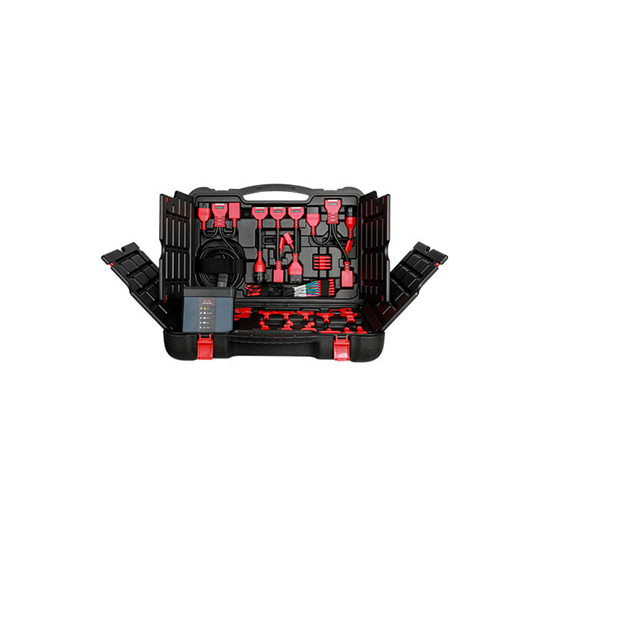
Diagnostic Tools and Software Hybrid vehicles come with intricate electronic systems and require precise diagnostics beyond what traditional vehicles need. At Hybrid Automotive Service, advanced diagnostic tools such as the Techstream for Toyota hybrids and the GDS2 for Chevrolet Volt models are indispensable. These tools allow technicians to read and interpret the numerous error codes that hybrids may produce, facilitating accurate troubleshooting. Battery Management Systems (BMS) The heart of any hybrid vehicle is its battery. Properly managing these batteries requires sophisticated BMS tools that can monitor cell voltages, state of charge, and overall battery health. Hybrid Automotive Service uses state-of-the-art BMS tools that not only diagnose but also help in the calibration and balancing of hybrid batteries to ensure optimal performance and longevity. Electric Motor Testing Equipment Hybrid vehicles depend on their electric motors just as much as their internal combustion engines. Testing equipment specific for these motors is critical in a Hybrid Auto Repair Workshop. At Hybrid Automotive Service, motor testers are used to assess the output and efficiency of the electric motors and to diagnose issues such as insulation failures or winding problems. Thermal Imaging Cameras Thermal imaging cameras are powerful tools in hybrid repair, enabling technicians to identify overheating issues and electrical faults that are not visible to the naked eye. These cameras can detect irregular heat patterns in hybrid components, such as inverters and converters, which are crucial for converting and directing electrical energy in hybrid vehicles. High-Voltage Insulation Testers Safety is paramount when working with the high-voltage systems of hybrid vehicles. Hybrid Automotive Service employs high-voltage insulation testers to ensure that all electrical components are properly insulated and pose no risk of electric shocks to technicians or the vehicle’s occupants. Fluid Service Equipment Hybrid vehicles often use different types of fluids compared to conventional vehicles, especially in their cooling systems to manage battery and electronic component temperatures. Hybrid Automotive Service utilizes specialized fluid service equipment that is compatible with these unique requirements, ensuring that fluid changes are performed accurately to maintain the health of the vehicle. Regenerative Braking Simulators Regenerative braking is a hallmark of hybrid technology, helping to recharge the battery while driving. To properly service this system, simulators are used at Hybrid Automotive to test and verify the correct operation of the regenerative braking system, ensuring that it integrates seamlessly with the vehicle’s overall braking system. OEM-Specific Tools Each hybrid vehicle manufacturer may require specific tools for certain tasks. Hybrid Automotive is equipped with OEM-specific tools for brands like Toyota, Honda, Ford, and others. These tools are designed to fit unique components found in specific hybrid models, which can be critical for performing precise repairs without damaging sensitive hybrid components. 9. Laser Alignment Tools Proper wheel alignment is crucial for any vehicle, but it is particularly important for hybrids, where efficiency and battery range can be affected by misalignment. Hybrid Automotive uses laser alignment tools that provide precise measurements and adjustments. These tools help ensure that the vehicle’s alignment meets manufacturer specifications, which is essential for minimizing tire wear and optimizing fuel efficiency. 10. Hybrid-Specific Lifts and Hoists Working on hybrids often requires accessing the undercarriage for battery and electric motor services. Hybrid Automotive Service employs lifts and hoists specifically engineered to accommodate the distinctive weight distribution of hybrid vehicles.These tools allow for safer and easier access to the underside of hybrids without risking damage to their complex systems. 11. Advanced Charging Systems Managing the battery charging process is critical in a hybrid auto repair workshop. Hybrid Automotive employs advanced charging systems that can precisely control the charging rate, adapting to different hybrid battery types, whether they are nickel-metal hydride or lithium-ion. These systems ensure that batteries are charged in a way that maximizes their lifespan and maintains their efficiency. 12. Component Cooling Systems Due to the high operational temperatures of hybrid components like batteries and electronic controllers, maintaining optimal temperature is vital. Hybrid Automotive uses component cooling systems during repairs to prevent overheating. This equipment helps simulate normal operating conditions and ensures that repairs and maintenance do not cause additional thermal stress to sensitive components. 13. Hybrid Vehicle Software Updates As hybrid technology evolves, software updates become increasingly important. These updates can improve vehicle performance, optimize battery management, and enhance diagnostic functions.Hybrid AutomotiveService is equipped with the technology needed to download and install updates directly from vehicle manufacturers, ensuring that every hybrid vehicle is running the most current software version. 14. Specialty Wrenches and Torque Tools Hybrid vehicles often use specialized fasteners that require specific wrenches and torque tools for proper servicing. Hybrid AutomotiveService stocks an array of these specialty tools to ensure that all components are assembled with the correct torque, preventing damage and ensuring reliability. 15. Safety Gear and Equipment The high-voltage systems in hybrid vehicles pose significant safety risks. At Hybrid Automotive, technicians are outfitted with insulated gloves, safety goggles, and tools rated for high voltage to ensure safety and precision.These safety measures protect both the mechanics and the vehicle systems during maintenance and repairs. 16. Customer Education Resources Part of servicing hybrids involves educating owners about their vehicles. Hybrid AutomotiveServiceprovides clients with resources such as manuals, instructional videos, and workshops to help them understand their hybrid’s features and maintenance needs better. Customers who are well-informed about their vehicles tend to adhere more consistently to required maintenance schedules, helping to avoid expensive repairs and prolong the lifespan of their vehicles.
How the Lexus CT200h Hybrid Battery Impacts Fuel Efficiency

The Lexus CT200h is known for its stylish looks, premium interior, and impressive gas mileage. The hybrid battery system is a major factor in why this car gets such excellent mileage, working with the vehicle’s engine to provide efficiency and propulsion where it counts. In this blog, we are going to discuss the role of the Lexus CT200h hybrid battery in fuel economy, factors affecting its performance and some tips to get the most out of it. Learning About Lexus CT200h Hybrid Battery System Powering the Lexus CT200h is a nickel-metal hydride (NiMH) battery pack that works with a 1.8-liter gasoline engine. The hybrid battery is essential in: Electric Motor: The electric motor is powered by the battery and can power the car with electric energy only when operating in low-speed conditions, such as city driving or while stopped in traffic. Acceleration Support: When the vehicle is accelerating, the hybrid battery supplements power to the gasoline engine. The combined power reduces load on and improves fuel economy by allowing the gasoline engine to run in a more efficient range. Storing Energy from Regenerative Braking: The system collects energy that would otherwise be wasted by braking and saves it in to the battery for later use. The hybrid battery system that enhances fuel economy Less Need for the Gasoline Engine The hybrid battery contributes to greater fuel economy primarily by lessening the burden on the gasoline engine. The CT200h can run on just electricity in stop-and-go traffic or during short journeys. This results in a reduction of engine starts and ultimately even less fuel consumed. Optimized Energy Use That hybrid system automatically toggles between the electric motor and gasoline engine—or uses both together, depending on driving conditions. It uses this energy management to minimize fuel used without sacrificing power. Regenerative braking unlike conventional cars that waste energy during braking, the CT200h recovers and stores it in the hybrid battery. This energy can be reused, especially during low-speed driving, significantly improving fuel efficiency. Idle Stop Feature The hybrid system automatically shuts off the gasoline engine when the car is idling, such as at traffic lights. During this time, the battery powers essential systems like air conditioning and infotainment, reducing unnecessary fuel consumption. Factors Affecting Hybrid Battery Performance and Fuel Efficiency Several factors can influence the performance of the hybrid battery and, consequently, the vehicle’s fuel efficiency: Driving Habits Frequent acceleration and high-speed driving reduce the time spent in electric mode, leading to higher fuel consumption. Gentle acceleration and steady speeds maximize the battery’s contribution. Battery Health Over time, hybrid batteries can degrade, leading to reduced efficiency. Regular maintenance and timely replacement ensure optimal performance. Temperature Extremes Extremely hot or cold weather can affect battery efficiency. Ensuring proper ventilation for the battery and parking in shaded areas can help maintain performance. Load and Terrain Carrying heavy loads or driving on hilly terrain increases the vehicle’s energy demands, reducing the battery’s ability to contribute to fuel savings. Maximizing Fuel Efficiency in Your Lexus CT200h To get the most out of your Lexus CT200h’s hybrid system, consider the following tips: Adopt Fuel-Efficient Driving Techniques Accelerate gradually and anticipate stops to take full advantage of regenerative braking. Maintain a steady speed whenever possible. Regular Maintenance Schedule regular check-ups for your hybrid battery and overall system. Ensure the cooling fan for the hybrid battery is clean and functioning properly. Use Eco Mode The CT200h’s Eco Mode adjusts throttle response and optimizes air conditioning to prioritize fuel efficiency. Keep Tires Properly Inflated Underinflated tires increase rolling resistance, making the engine and hybrid system work harder. Limit Use of High Energy Accessories While hybrid batteries power several vehicle systems, limiting the use of energy-intensive accessories like air conditioning can improve efficiency during longer trips.
Hybrid Car Specialists vs. General Mechanics: What’s the Difference?
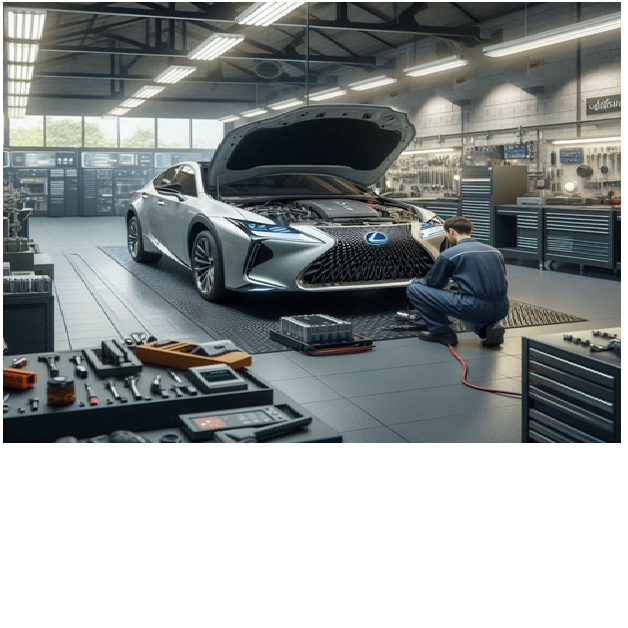
As hybrid vehicles become increasingly popular, the debate about who should maintain and repair them has grown. Should you take your hybrid car to a general mechanic or seek out a Hybrid Car Specialist? In this post, we’ll explore the key differences between these two types of professionals, highlighting why entrusting your hybrid to a specialist is crucial. At Hybrid Automotive Service, we pride ourselves on providing top-notch services tailored specifically for hybrid vehicles. Understanding Hybrid Technology Hybrid cars, such as Toyota Prius and Lexus RX models, combine traditional internal combustion engines with electric motors and sophisticated battery systems. This dual powertrain requires a deep understanding of both mechanical and electrical engineering principles. While general mechanics are adept at handling conventional engines, they often lack the specialized training and tools needed to work on hybrid-specific components like: High-voltage battery systems Electric drive motors Regenerative braking systems Power control units (PCUs) Key Differences Between General Mechanics and Hybrid Car Specialists Training and Certification General mechanics typically receive training focused on traditional gas-powered vehicles. They may understand the basics of hybrid cars but often lack in-depth knowledge of hybrid systems. Hybrid Car Specialists, like the team at Hybrid Automotive Service, undergo extensive training specific to hybrid technology. They stay updated on the latest advancements, ensuring your vehicle receives the best care possible. Specialized Tools and Equipment Hybrid vehicles require unique diagnostic tools and high-voltage safety equipment that many general mechanics do not have. Attempting to repair a hybrid system without these tools can lead to incomplete fixes or, worse, safety risks. At Hybrid Automotive, we use advanced diagnostic tools designed specifically for hybrid systems. This allows us to accurately identify and address issues, ensuring your car runs efficiently. Safety Precautions Working on high-voltage systems, such as hybrid batteries, poses significant safety risks. Without proper training, a mechanic could accidentally cause damage to the vehicle or even endanger themselves. Hybrid Car Specialists are trained to handle high-voltage components safely. They follow strict safety protocols, giving you peace of mind knowing your vehicle is in capable hands. Cost-Effectiveness It may seem cheaper to visit a general mechanic, but their lack of expertise could lead to misdiagnoses or improper repairs. This can result in additional costs down the line. A Hybrid Car Specialist provides accurate diagnostics and efficient repairs, saving you time and money. At Hybrid Automotive, we focus on preventative maintenance to help you avoid costly repairs in the future. Warranty and Quality Assurance General mechanics might void your hybrid vehicle’s warranty if they perform unauthorized repairs. On the other hand, specialists often work in compliance with manufacturer guidelines, preserving your warranty. At Hybrid Automotive, we offer quality assurance on all our services, ensuring your vehicle maintains its value and performance. When Should You Visit a Hybrid Car Specialist? If you own a hybrid vehicle, it’s essential to consult a specialist for: Battery replacements or reconditioning Powertrain diagnostics Regenerative braking issues Check engine or hybrid system warning lights Routine hybrid maintenance Ignoring these signs or relying on general mechanics could lead to bigger problems and higher costs. Why Choose Hybrid Automotive Service? At Hybrid Automotive, we specialize in providing comprehensive care for hybrid vehicles. From routine maintenance to complex repairs, our team of certified Hybrid Car Specialists is equipped to handle all your hybrid needs. We offer: Battery replacement and reconditioning services Accurate diagnostics with state-of-the-art equipment Transparent pricing and exceptional customer service Preventative maintenance to extend the life of your hybrid
How to Choose the Right Workshop for Hybrid Car Repairs?
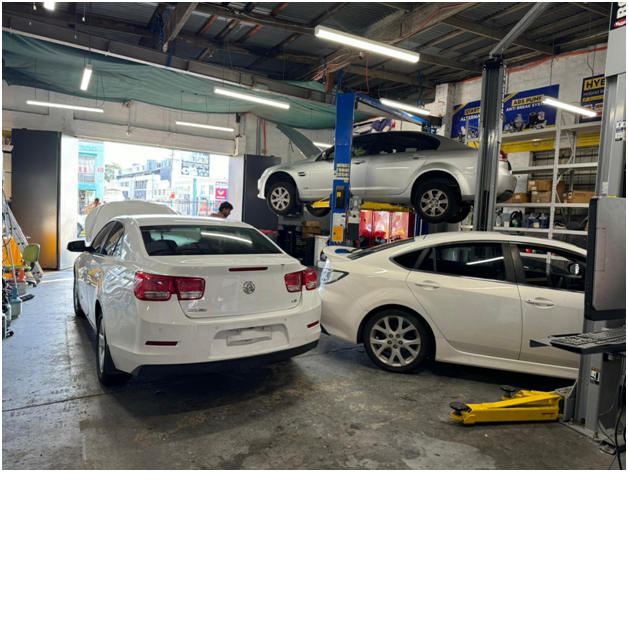
How to Choose the Right Workshop for Hybrid Car Repairs Hybrid cars have gained immense popularity due to their fuel efficiency and eco-friendliness. However, maintaining these advanced vehicles requires specialized care. Unlike conventional cars, hybrids come with complex systems such as high-voltage batteries and electric motors, making it essential to find the right workshop for Hybrid Car Repair. In this guide, we’ll walk you through the key factors to consider when choosing a workshop, ensuring your hybrid vehicle receives the best care possible. At Hybrid Automotive Service, we specialize in providing top-notch hybrid car services tailored to your vehicle’s unique needs. Why Choosing the Right Workshop Matters Hybrid vehicles, like the Toyota Prius or Lexus, are more sophisticated than traditional cars. Their repair and maintenance demand expertise in both mechanical and electrical systems. Selecting the right workshop ensures: Accurate diagnostics and repairs Safety when handling high-voltage components Cost-effective solutions Extended vehicle life Key Factors to Consider When Choosing a Workshop for Hybrid Car Repair Specialization in Hybrid Vehicles Not all workshops are equipped to handle hybrid cars. Look for workshops that explicitly advertise their expertise in Hybrid Car Repair. Specialists have the necessary training to handle hybrid-specific issues, such as battery reconditioning or inverter failures. At Hybrid Automotive Service, we focus solely on hybrid vehicles, offering a level of expertise that general mechanics cannot match. Certified Technicians Certification is a strong indicator of a workshop’s reliability. Certified technicians have undergone rigorous training on hybrid systems, ensuring they understand the intricacies of hybrid technology. Ask the workshop about the qualifications of their mechanics. At Hybrid Automotive Service, our team consists of certified hybrid car specialists, providing peace of mind that your vehicle is in expert hands. Advanced Diagnostic Tools Hybrid electric vehicles are complex machines which require special tools in order to effectively and accurately diagnose, troubleshoot, and repair issues. That’s where some tools/tools are absent in a general workshop, which means inappropriate diagnosis or unsatisfactory repair. Select a workshop that has cutting-edge diagnostic technology. We use the latest tools at Hybrid Automotive that are able to locate problems quickly and cost effectively so you save both time and money. Familiarity with high-voltage systems Understanding high-voltage systems such as hybrid batteries and power control units needs specialization in safety protocols. Safety hazard: A new mechanic might put him or herself at risk, and they could do the same to your car. If the workshop deals with such high-voltage components, check its experience. Typically, hybrid cars have high-voltage components and systems that require added safety training to work on, but our technicians at Hybrid Automotive are trained to process all high-voltage systems safely. Transparent Pricing Hybrid vehicles have a great deal of difference in repair costs. A good workshop should be transparent on pricing and what services are needed. Hybrid Automotive has no hidden fees and upfront pricing. We will guide you through the repair process and give a detailed estimate before any work is done. User Feedback and Reviews The customer feedback served as an added resource on running a workshop. Read reviews that praise the expertise, customer service and reliability of the workshop. We take honor in the reviews we have received from our customers at Hybrid Automotive Service. We have been a one-stop solution for hybrid car battery replacements for many years now and our commitment to service quality and customer satisfaction has earned us a great reputation in the hybrid community. Warranty on Repairs When a workshop guarantees its repairs, it shows you that they are confident about their work. This provides you with some extra peace of mind knowing your vehicle is being repaired properly the first time around. At Hybrid Automotive, we warranty all of our work to ensure you continued peak performance from your vehicle. Why Use Hybrid Automotive for Your Hybrid Car Repair? Hybrid Automotive are passionate about providing the best care for hybrid vehicles. So this is the reason behind hybrid owners have faith in us: Hybrids only: We work on hybrids and only hybrids, whether it’s maintenance or full repairs. Trained Professionals: We have certified hybrid car technicians on staff for an accurate diagnosis and repair. State of the Art Technology: We use the latest diagnostic and repair tools specific to hybrid vehicles. Transparency in Pricing: We give you worry-free, low monthly payments that reflect our clear pricing system, free of unexpected things. Excellent Customer Support:Our team is ready to deal with any complications and assist you at every step of the process.
Charging and Maintaining a Lexus Hybrid Battery
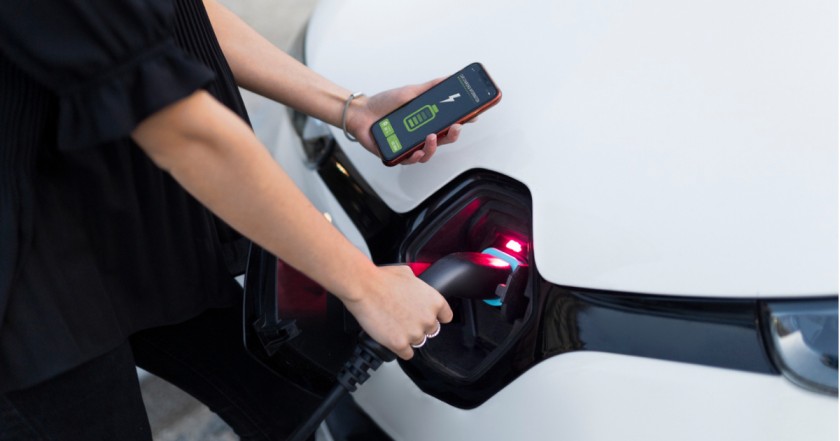
Maintaining and properly charging your Lexus hybrid battery is crucial for ensuring the longevity and optimal performance of your vehicle. This guide covers essential aspects of hybrid battery care, including charging methods, the role of regenerative braking, best maintenance practices, and how often to check your battery. Understanding these factors will help you extend the lifespan of your Lexus hybrid battery. How to Charge a Lexus Hybrid Battery? Lexus hybrid batteries are designed to be charged primarily through regenerative braking and engine power, rather than being plugged into an external power source. This self-charging system is a hallmark of hybrid technology. Different Methods of Charging Regenerative Braking: When you apply the brakes, the vehicle transforms kinetic energy into electrical energy, which is then stored in the hybrid battery. Engine Power: The internal combustion engine generates electricity to charge the battery while driving, especially during extended drives. Steps to Ensure Your Lexus Hybrid Battery Stays Charged: Drive your Lexus Hybrid regularly. Use Eco mode and EV mode if available. Follow the manufacturer’s recommended maintenance schedule. Ensure the engine is well-maintained for efficient battery recharging. Maximize the use of regenerative braking by coasting to stops. Avoid long periods of inactivity; drive the vehicle at least once every two weeks. Park in a garage or shaded area during hot weather, and keep the vehicle warm during cold weather. Regularly have the hybrid battery’s health checked at a Lexus service center. Be aware of your hybrid battery warranty coverage. Additional Tips: Battery Health Check: Regularly have your hybrid battery checked by a Lexus service center to ensure it is in good condition. Hybrid Battery Warranty: Be aware of the warranty on your hybrid battery, which often covers a substantial period or mileage. Do Lexus Hybrid Batteries Need to Be Plugged In? No, traditional Lexus hybrid batteries do not need to be plugged in for charging. Unlike plug-in hybrids (PHEVs) or fully electric vehicles, Lexus hybrids are designed to self-charge through regenerative braking and engine power. This self-sustaining system captures and stores energy during regular driving and braking, eliminating the need for an external power source. For extended electric-only driving, Lexus offers plug-in hybrid variants that can be charged using a standard electrical outlet or a dedicated charging station. Here’s a detailed explanation to understand the self-sustaining nature of these batteries. Self-Charging Nature of Lexus Hybrid Batteries Traditional Lexus hybrids are designed to be self-sustaining. The battery is charged through two main methods: Regenerative Braking: When you brake, the vehicle captures kinetic energy and converts it into electrical energy, which is then stored in the hybrid battery. This process helps maintain the battery’s charge without the need for an external power source. Engine Power: The gasoline engine also helps charge the battery. When the engine runs, it can generate excess energy that is used to keep the hybrid battery charged. This self-charging system efficiently captures and stores energy during regular driving and braking, ensuring the hybrid battery remains charged without the need to plug in. When and Why Plugging In Might Be Necessary While traditional Lexus hybrids do not require plugging in, Lexus also offers plug-in hybrid variants (PHEVs). These models combine the benefits of a traditional hybrid with the option to charge the battery from an external source. Plug-in hybrids (PHEVs) can be charged using a standard electrical outlet or a dedicated charging station, allowing for an extended electric-only driving range. This flexibility provides more options for drivers who want to maximize their vehicle’s electric capabilities. How Does the Regenerative Braking System Charge the Lexus Hybrid Battery? Regenerative braking technology in Lexus hybrids converts kinetic energy, typically lost as heat during braking, into electrical energy. This electrical energy is then used to recharge the hybrid battery, enhancing efficiency and reducing energy waste. Step-by-Step Explanation of How Regenerative Braking Works The regenerative braking system in a Lexus hybrid vehicle is a key component that helps charge the hybrid battery. Here’s a detailed explanation of how this system works: Braking: When the brake pedal is pressed, the electric motor reverses its function and acts as a generator. Energy Conversion: The generator converts kinetic energy into electrical energy. Energy Storage: The electrical energy is stored in the hybrid battery for future use. Benefits of Regenerative Braking for Battery Health Increased Efficiency: Improves overall vehicle efficiency by capturing energy that would otherwise be wasted. Reduced Wear: Lessens wear on traditional brake components, potentially lowering maintenance costs. Extended Battery Life: By continuously charging the hybrid battery during braking, regenerative braking helps maintain the battery’s charge level, which can extend its life and improve the vehicle’s overall efficiency. Best Practices for Maintaining a Lexus Hybrid Battery Maintaining your Lexus hybrid battery is essential for vehicle efficiency and longevity. Proper care preserves battery life, enhances fuel economy, and reduces environmental impact. Here are some best practices to keep it in top condition: Regular Maintenance Tips to Extend Battery Life Scheduled Check-Ups: Follow the manufacturer’s recommended maintenance schedule. Battery Cooling System: Ensure the battery cooling system functions correctly to prevent overheating. Drive Regularly: Regular driving keeps the battery active and healthy. Importance of Professional Check-Ups and Diagnostics Professional diagnostics can identify potential issues early, preventing more significant problems and ensuring the battery operates efficiently. Environmental Factors Affecting Battery Lifespan Temperature: Extreme hot and cold temperatures can affect battery performance. Park in shaded or sheltered areas when possible. Driving Conditions: Smooth, moderate driving conditions are ideal for battery longevity. How Often Should I Check My Lexus Hybrid Battery? To ensure optimal performance and longevity, check your Lexus hybrid battery during regular vehicle service intervals, typically every 10,000 to 15,000 kilometers. Additionally, perform basic monthly checks for warning lights and monitor overall vehicle performance. Regular maintenance and monitoring help keep your hybrid system in top condition. Recommended Frequency for Battery Checks Routine Maintenance: Check the battery during regular vehicle service intervals, typically every 10,000 to 15,000 kilometers. DIY Checks: Perform basic checks, such as inspecting for warning lights and monitoring performance. Signs That
